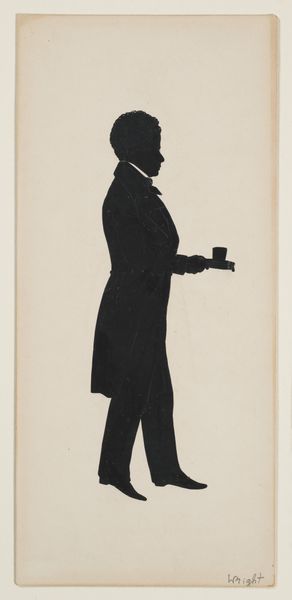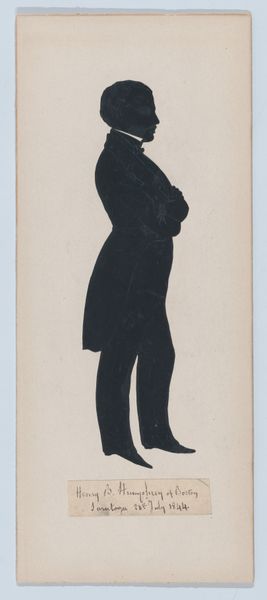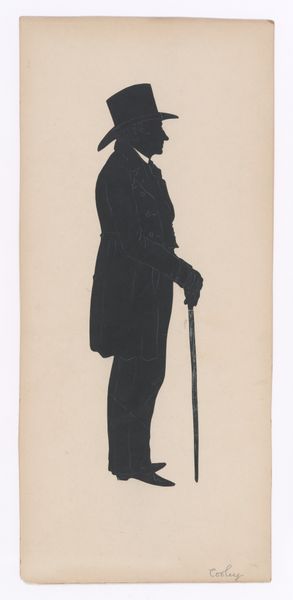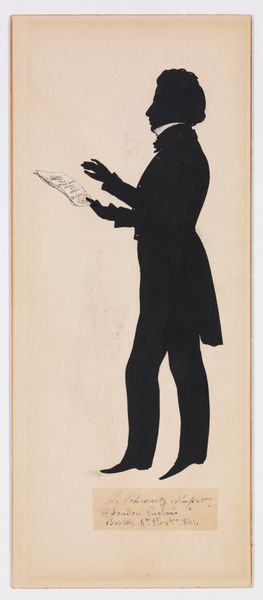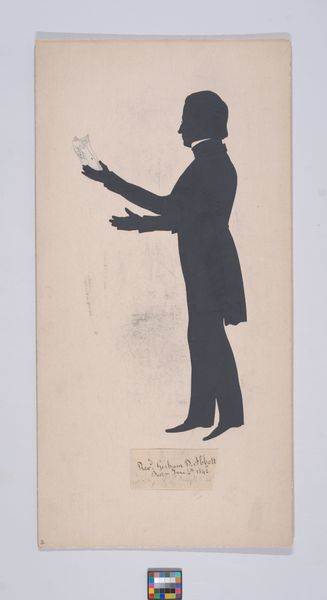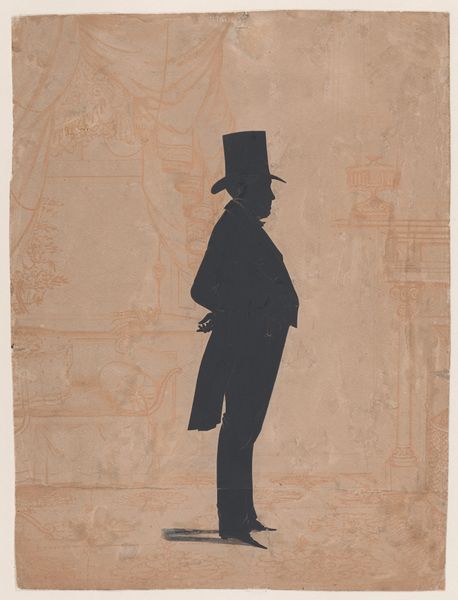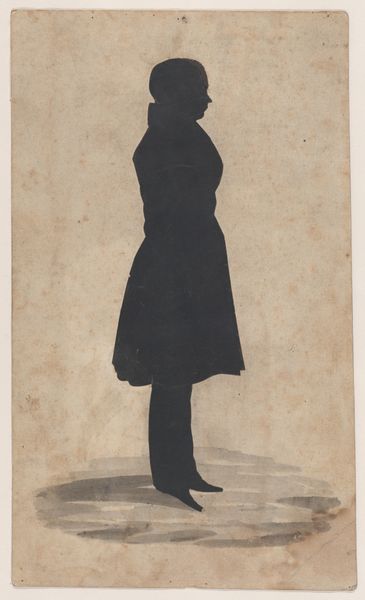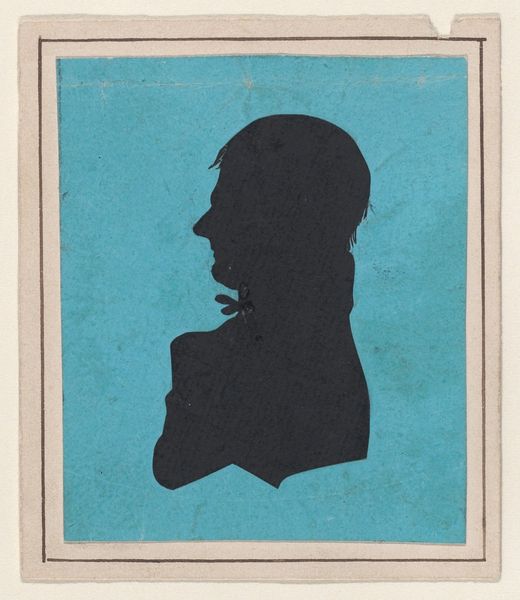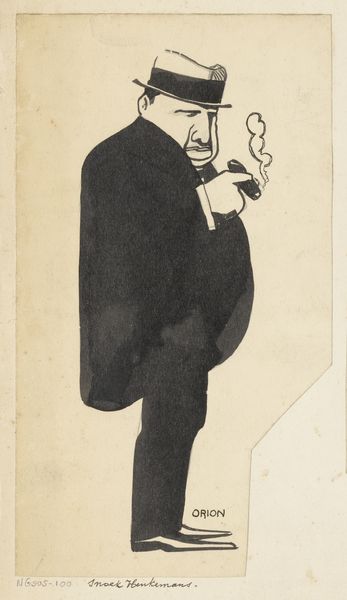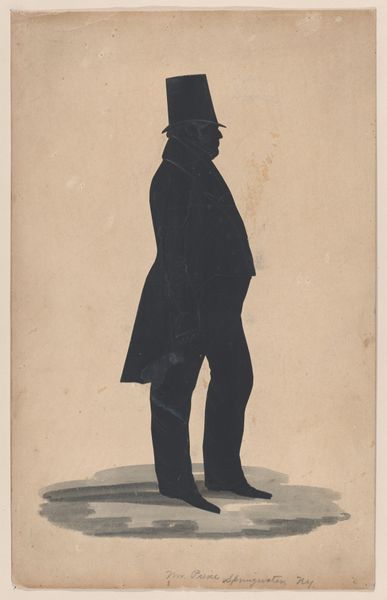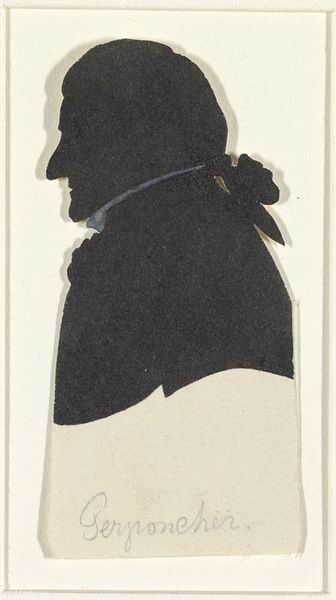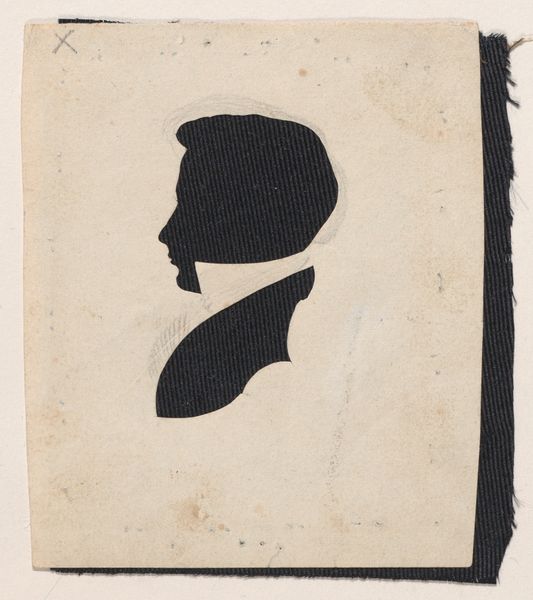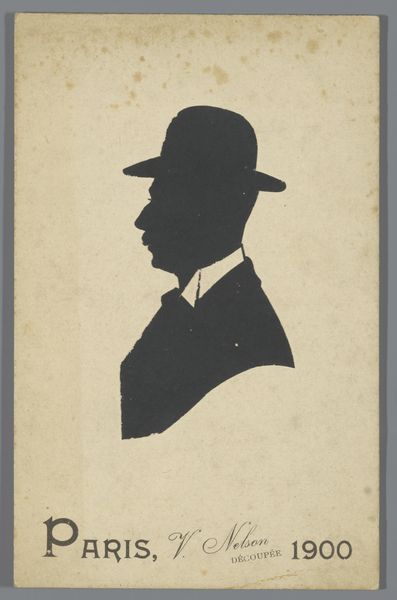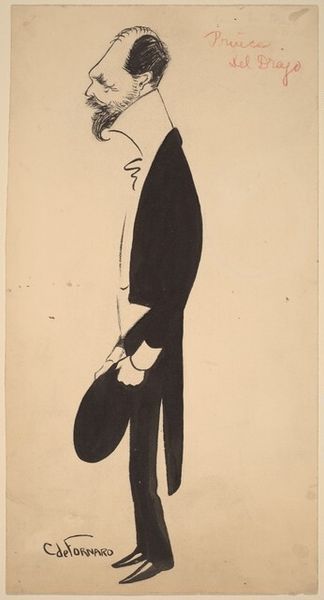
Portrait of a Man, Full-length, Facing Left, with Arms Folded and a White Collar 1841
0:00
0:00
drawing, print, paper, ink
#
portrait
#
drawing
#
ink paper printed
# print
#
figuration
#
paper
#
ink
#
romanticism
#
men
#
watercolour illustration
Dimensions: Image: 8 3/8 × 2 5/16 in. (21.3 × 5.9 cm) Sheet: 9 7/8 × 3 7/8 in. (25.1 × 9.8 cm)
Copyright: Public Domain
Editor: Here we have Auguste Edouart’s “Portrait of a Man, Full-length…” created in 1841 using ink on paper. The figure is rendered as a complete silhouette. It looks rather severe, wouldn’t you say? How do you interpret this work? Curator: Well, silhouettes like this were products of their time, weren't they? Before widespread photography, this method of image production provided relatively inexpensive portraiture. Edouart produced thousands, think about the labour involved. It becomes a question of industrial craft more than fine art. Editor: I never really considered the sheer volume. Was it considered low art then? Curator: Boundaries were certainly blurred. It served a consumer need, it documented people in a growing middle class. But the artist is mediating this portrait, shaping identity through what they choose to render... the sharp cut of the jacket, the angle of the nose. The materials are simple, mass produced perhaps, but the result signifies social standing. Who could afford to sit for a silhouette? Who chose this very specific representation? Editor: So you're saying the art lies not just in the final product, but in the labor and material context of its creation? Curator: Precisely. Think of the paper, the ink – commodities shaped by industrial processes and then deployed to capture an individual likeness, but also communicate something about a particular social moment. It's about consumption as much as creation, really. Editor: That really shifts how I see this portrait. It is not simply an individual but a product of material conditions. Thank you. Curator: My pleasure, a constant remembering of context shapes what art can teach.
Comments
No comments
Be the first to comment and join the conversation on the ultimate creative platform.
